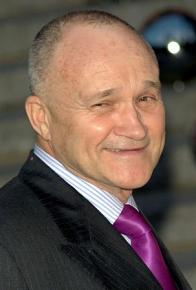Protesting the commissioner of stop-and-frisk
and report from Brown University on a protest that disrupted the speech of New York’s top cop—and the aftermath on campus.
LESS THAN a week before NYPD Commissioner Ray Kelly—architect of the “stop-and-frisk” racial profiling policy used by New York City police nearly 2,000 times a day in recent years—was scheduled to lecture at Brown University about “proactive policing,” dozens of student and community activists met to draft demands and plan a response. Among those demands was that the event be cancelled.
The Taubman Center for Public Policy wouldn’t agree to this demand, but on October 29, more than 300 students and members of the community did the job for them.
An hour before Kelly was to take the podium, demonstrators began to rally. As the crowd grew larger, people began to take their seats. The main meeting room was filled, the overfill room was packed, and hundreds of people remained outside—the majority of them there in opposition to Kelly.
Kelly got one sentence of his speech in before opponents of racial profiling began shouting and chanting. Some of those protesting gave the facts about the racism of stop-and-frisk, while others told stories of being degraded as they were stopped by police. Protesters read a stating in unison arguing that by inviting Kelly to lecture, Brown University was complicit in the injustices of stop-and-frisk.

When representatives of the administration asked protesters to be quiet or the event would be cancelled, those standing up and demanding justice became louder. After a half hour, Kelly left the stage.
The administration and some in the campus community have decried the protest as censoring Kelly and an attack on free speech. But the demonstrators were exercising their free speech by raising their voices against a policy that infringes on the basic constitutional rights of millions of its victims, according to the ruling of a federal judge.
Given the tensions surrounding the cancellation of the speech, university President Christina Paxson organized an open forum about the protest the following night. What the administration thought would be a small meeting on the university’s “values and expectations” became another place for students to defend the successful protest with further testimony about stop-and-frisk and the violations of the NYPD.
More than 600 students and other members of the Brown community attended the meeting. Students also spoke out about racism on campus. As if the underline the point, one Black graduate student was cornered at the door because he did not “look like a Brown University student.”
Since the protest and the forum the next, many students and faculty have said that they had never experienced such a polarized atmosphere on campus, and that many feel refreshed that so many students care so strongly about justice and freedom. Indeed, a teach-in on stop-and-frisk packed a 400-person auditorium.
The events of the past week have brought the anti-racist struggle to the fore on campus, and cast a light on numerous issues. Many people left the campus forum with the conclusion that the only reason it was called in the first place and why there now exists a debate on campus around systemic racism and stop-and-frisk is because of the actions students and members of the Providence community.


